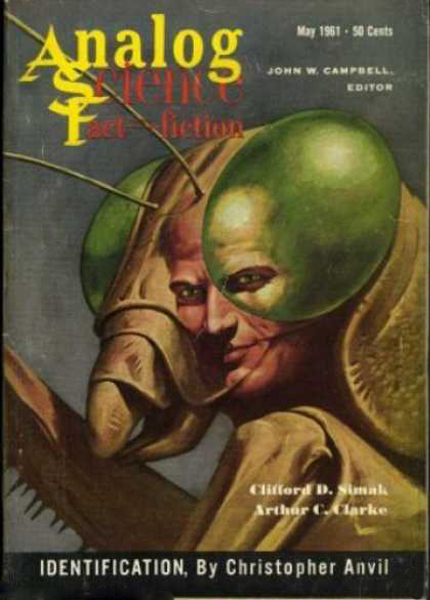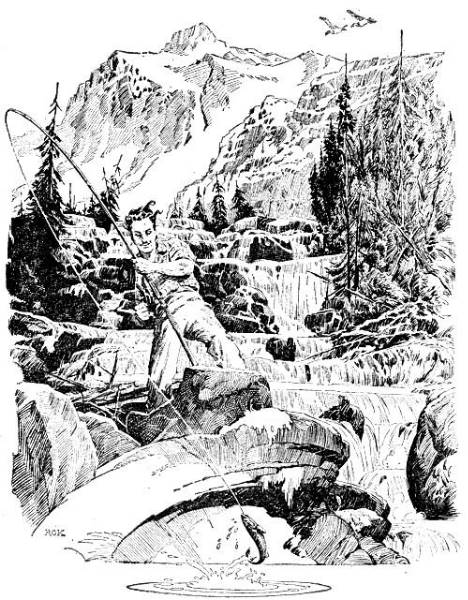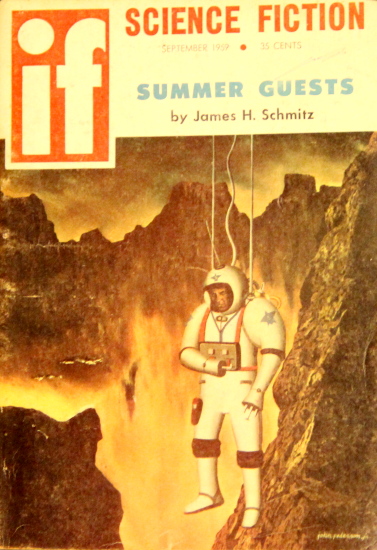
by Victoria Lucas
I am so honored to be taking up space here! The Traveler thought enough of my letters to the editor that he asked me to become a regular contributor. In my letters I mentioned how I've just graduated from Stanford and am going back to my old job in the Drama Department at the University of Arizona, and my mother's home, where I'm typing on an old portable Smith-Corona that has seen far too many papers, dissertations, theses, and so on as I've struggled to work my way through college.
Last fall I tacked up on my bulletin board (unfortunately in the sun) a short column of news about somebody with whom I sometimes work in Tucson little theatre–Bob Hammond, a French professor at the University of Arizona who once won a Fulbright to Paris and never recovered. He writes his plays in French and English and translates from each language into the other. The blurb introduced Hammond as one of four playwrights who formed a producing group for their work. One of the other playwrights was a fellow by the name of Charles Finney who was supposed to produce a play of his this year.

The article reminded me that I may have met Finney as I house-managed and assistant-directed Bob's plays. Or I might have seen him in his workplace, the newspaper building downtown, where he has been editor of the Arizona Daily Star for 32 years (I spent my Saturdays at the Tucson Daily Citizen my senior year in high school helping to put out the "Teen Citizen," a section of the paper.) So when I ran across The Circus of Dr. Lao and Other Improbable Stories I picked it up. It's edited by Ray Bradbury and published by Bantam Books, first out 1956.
In the very first sentence of his introduction to this book of short and long stories, Bradbury asserts that the works in this book "are fantasies, not science-fiction." He goes on to list some adjectives and statements that contrast science fiction and fantasy as genres (or at least his idea of the genres). Then, in two short, strident paragraphs, like trochees in a poem, he argues:
"Science-fiction balances you on the cliff.
Fantasy shoves you off."
This book of short stories (and one long one) conforms to that opinion. At least the shoving-off-cliffs part.

Charles Finney's novella The Circus of Dr. Lao is on the cover and first in the book. Finney uses figures of mythical people and animals to produce what seems like an almost metaphorical story of Abalone, Arizona, which apparently is what Charles Finney calls Tucson. He began the story while he was in the US Army in China in 1929, and it has seen numerous editions since it was first in print in 1935.
Lao Tzu (or Laozi, or Lao Tse or …) is a mythical/historical figure who is said to be the author of the Tao Te Ching, a book of philosophy, and the founder of Taoism (Daoism), variously a religion and a philosophy. The presence of this part man part myth as the owner of a circus is better understood when you see who and what the circus animals and people are: a medusa, a sea serpent, Apollonius of Tyana (15 to 100 AD, a Christ-like figure who incongruously wears and uses a cross), a satyr, a Roc chick, Sphinx, Chimera, and so on. The real venerable philosopher (Dr.) Lao did not preach withdrawal from the world but discernment and enjoyment of what is in it, apparently here containing the inventions of the human imagination that might include himself (does that tangle your nervous system?)
These animals and humanlike entities do not mix well, and they look strange marching through the town of Abalone as circuses used to do. They are so bizarre that the people of Abalone do not know what to make of them, and they argue incessantly about whether one of the circus figures is a bear, a "Russian," or a man. Finney doesn't even settle the matter in his ending "Catalogue" of characters, questions, and other matters at the end.
I cannot recommend this story enough. Although Bradbury calls it fantasy, it fits in no genre, has no particular moral, steps in no one else's shoes. I am only familiar with one other book of Finney's, The Unholy City, which seems to me again to be without identifiable genre, one that calls out human foibles but does not condemn them. Both books are funny but not laugh-out-loud funny. Their humor emanates quietly from human (and mythic) limitations and self-aggrandizement.
What I find most amusing is the way the good (or not-so-good) doctor can change in an instant back and forth from a stereotype of an ignorant and hysterical "heathen Chinee," misplaced letters "L" and all, to a calm, philosophical global traveller speaking perfect English.
In one scene, he "came dashing up, 'Whatsah mattah Glod damn college punks come this place?' …'You no savvee nothing here. Glet to hell out! This my show, by Glod!'" Eventually he "glets" them out by shouting, "Hey, Lube! (instead of the circus/carnival rallying cry, "Hey, Rube!").
A little later he expounds on his Hound of the Hedges (supposedly a living dog made out of vegetable matter). He begins with "Epitomizing the fragrance of grassplots, lawns, and hedgy, thickset places, this behemoth of hounds stands unique in the mysterious lexicon of life." Elsewhere he maintains his innocence of fraud by saying "You see: I no fool you. This place no catchum fake."
(In my experience, some clever people conceived in foreign lands or looking still foreign in this one use this ability to believably imitate their stereotypes in order to maintain their privacy and ward off unwelcome demands.)
As the show goes on, there are casualties, mainly from the Medusa's ability to turn people to stone, but Dr. Lao is almost killed himself. He survives, though, and just as he came to town by no visible means (not by truck or train), he leaves with his menagerie the same way.
"I am a calm, intelligent girl." Miss Agnes Birdsong reassures herself. "I am a calm, intelligent girl, and I have not seen Pan on Main Street." Circus of Dr. Lao
"When I let go of who I am, I become what I might be." Lao Tzu

The rest of the book consists of short stories of varying length. The first, Nigel Kneale's story The Pond, seems to me to have congealed around a particular idea the way the white of a boiled egg encircles the yolk. Anything I say about it will probably spoil the ending of this extremely short story, so I will just state that it is of frogs and men.
The Hour of Letdown by E. B. White pits men against an artificial brain. One that likes to get drunk after a hard job well done.
So far humans aren't doing very well. Let's see how things go with Roald Dahl's The Wish. Hmmm. Imagination 3, human beings 0.
And "The Summer People"? Well, I know Shirley Jackson's work, and her imagination tends to the … let's just say she's well known for The Haunting of Hill House, a ghost story. A couple lucky enough to have a summer home decide to stay there after Labor Day, something they've never done before. Be prepared for unending suspense.
Nathaniel Hawthorne, the author of the next story, is taught in school as one of America's first, most celebrated authors. He is probably best known for his book The Scarlet Letter (1850), about fictional events 200 years earlier in Puritan Boston, where an adulteress is forced to wear a red letter "A" on her dress. This story, Earth's Holocaust, dates from 1844 and is strongly reminiscent of Jonathan Swift, whose work Hawthorne probably would have read. Its moral: beware of reforms, because evil will spring forth anew.
Loren Eiseley is an anthropologist, not a writer of fiction, but this story (essay?) was published in 1948 in Harper's Magazine, when he was head of the Anthropology Department at the University of Pennsylvania. "Bone hunters," he writes, "are listeners. They have to be." He hears about Buzby's Petrified Woman (the story title) while hunting for fossils, and he has to find out if it's "a bone." Because it's in this collection I would think it's fantasy. Because it's Eiseley I'm inclined to believe it's a memory. You judge.
Oliver La Farge is also an anthropologist, but he wrote recognized fiction. This story, The Resting Place, also became part of his collection A Pause in the Desert (1957) (Oh, I wish they hadn't misspelled "Chinle"–with an extra "e." It's one of my favorite spots.) So I do understand "the old man's" obsession with Navajo country. Its beauty is formidable, its mystery eternal. This story does not challenge that view.
Threshold is by Henry Kuttner – an author with more pseudonyms than anyone else I know. His most frequent one was Lewis Padgett, a name he used when he wrote with his wife C. L. Moore, but apparently Kuttner attributed this story to himself. Kuttner is notable for his correspondence with H. P. Lovecraft, the inventor of the world of Cthulu. If you have read or read about Lovecraft's work, you can guess the atmosphere and maybe one of the few characters in this story, which has been described elsewhere as "horror." Apparently the husband-and-wife team of Kuttner and Moore did not have two egotists on it, because Kuttner writes here, "egotists cannot live together." Beware: this is the second time a devil has appeared in this book. Third time's a charm.
In James H. Schmitz's Greenface a barking dog begins to "churn up the night" as the owner of a fishing camp tries to decide how to deal with a green horror that has driven away his campers–and his girlfriend.
The Limits of Walter Horton features this quote by author John Seymour Sharnik: "Even if one accepted Horton's rare talent as the purest sort of inspiration, that didn't explain what was happening."
What if, while you are woolgathering, you are really not all there? What if part of you is truly in the place and time you are thinking about, and the you in the present has somehow diminished? Maybe this story, The Man Who Vanished by Robert M. Coates, would be the result.
For me, the stories in this book are uneven in quality and interest, but however you can get it, I absolutely recommend The Circus of Dr. Lao. If you like Galactic Journey, you'll like Finney.



















